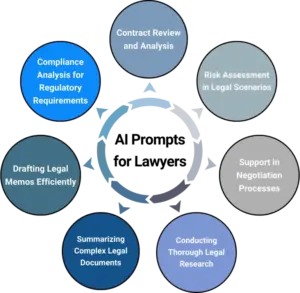In the business world, contracts are super important because they’re like the rules of the game when two parties decide to work together. These documents lay out what each side has to do to make the partnership successful. Both parties promise to do certain things in contracts, known as “Contractual Obligations”.
It’s like a to-do list that everyone involved has to follow to keep things running smoothly. Businesses must grasp these obligations as they ensure legality, lower risks, and strengthen relationships between companies. To manage these obligations well, businesses need to know the rules and best ways to handle contracts.
This blog will talk about what these obligations are, why they matter, and how to handle them the right way. We’ll also address common questions about contract mistakes to avoid and what happens if you can’t meet your obligations.
By understanding these obligations and handling contracts wisely, businesses can keep things legal, avoid problems, and build great partnerships. Let’s dive into the world of contractual obligations and how they shape business deals.
Understanding Contract Obligations

Contracts are legally binding agreements that establish the rights and obligations of the parties involved. In a business context, contracts provide a framework for conducting transactions and ensure that all parties fulfill their commitment. These obligations can take various forms, including the delivery of goods or services, payment obligations, confidentiality agreements, and compliance with specific terms and conditions.
Contractual obligations mean that if you don’t do what you promised in a contract, you could get in trouble with the law. For instance, if you agree to provide goods or services but don’t deliver them, the other party can sue you for breaking the contract. The same goes for not paying on time or sharing secrets when it’s not allowed.
In contracts, both sides have things they must do, and it’s important to do them right and on time. This builds trust between parties and keeps the contract strong. Understanding these obligations helps businesses follow the law, avoid risks, and protect themselves.
Good contract management is key to making sure everyone sticks to their obligations. It includes keeping track of tasks, managing risks, and solving problems as they arise. With proper contract management, businesses can run smoothly, lower the chances of fights, and keep their partnerships healthy.
Importance of Contract Obligation in Business Agreements
Contractual obligations are the duties and responsibilities that are legally binding and enforceable by law. They are important in business agreements as they outline what each party must do to meet the contract’s terms.
Contractual obligations are extremely important in business agreements. They make sure both parties do what they promised, leading to successful contract completion.
Not meeting contractual obligations can lead to legal trouble, such as breach of contract lawsuits or financial penalties.
Related Article: How To Manage Contracts Efficiently: Best Practices
The Role of Contracts in Defining Obligations

Contracts play a pivotal role in Outlining and defining obligations between parties in a business agreement. They establish a clear framework for the mutual obligations and responsibilities of all involved entities. Contracts detail terms for parties to fulfill agreed actions or services, binding them legally to those conditions. Through the enforceability of these contractual obligations, parties can ensure compliance and accountability throughout the contract lifecycle, fostering trust and transparency in business dealings.
How Contracts Establish Clear Obligations
Contracts play a crucial role in Outlining clear obligations between parties. By outlining specific terms and conditions, contracts establish a framework for both parties to understand their responsibilities. Clearly defined contract terms help in avoiding confusion and disputes by setting out expectations, timelines, and performance metrics. This clear understanding helps each party know their duties, making contracts run smoothly and lowering the chances of disagreements.
Legal Requirements for a Valid Contract
A valid contract must meet certain legal requirements. These include an offer, acceptance, consideration, legal capacity, and lawful purpose. The terms must be clear and agreed upon by both parties. Also, make sure to finish the contract on time and with the right paperwork.
Failure to meet these criteria could render the contract invalid. Seeking legal advice when drafting contracts can ensure compliance with all legal requirements for a valid and binding agreement.
Related Article: What Is A Contract? Definition, Importance And Key Terms
Elements of Contractual Obligations
Contractual obligations consist of various elements that define the duties and responsibilities of each party. These parts make sure both sides know what they need to do and give a structure for meeting contract duties. Compliance with these elements is crucial for successful contract performance and the maintenance of a healthy business relationship.
Some key elements of contractual obligations include:
- Performance of specific tasks or services: Contracts often say what one party needs to do to keep their promises.
- Timelines: Contracts specify when a task needs to be finished.
- Quality and standards: Some contracts may specify the required quality levels to meet while fulfilling obligations
- Payment terms: Contractual obligations may involve payment terms, including the amount, frequency, and method of payment.
Types of Contractual Obligations

Contractual obligations can vary depending on the nature of the business agreement. Here are a few examples of things that might be required in business agreements. The obligations vary based on the type of contract and the needs of the parties involved.
Some common types of contractual obligations include:
Obligation to Deliver Goods or Services
One common type of contractual obligation is the commitment to deliver goods or services. When businesses make deals, one might need to give goods or services to the other. This obligation requires the delivering party to fulfill their duties on time and according to the agreed-upon terms.
The obligation ensures that the products or services meet the quality standards stated in the contract. The delivering party must also meet any deadlines or timeframes outlined in the agreement.
In industries like manufacturing, logistics, or professional services, delivering on time is crucial. Meeting this obligation maintains trust and agreement success. Meeting this obligation is important to keep the trust and satisfaction of the other party and ensure the agreement’s success.
Payment Obligations and Terms
In business agreements, payment obligations and terms outline the financial responsibilities of the parties involved. Clearly defined payment terms ensure a smooth contract process. Timely payments are crucial for contract performance and maintaining a positive business relationship.
Any breach of payment terms can lead to contractual disputes and legal actions. These parts make sure both sides know what they need to do and give a structure for meeting contract duties. Proper management of payment obligations is essential for successful contract lifecycle management.
Confidentiality and Non-Disclosure Agreements
Confidentiality and non-disclosure agreements are vital components of business contracts, safeguarding sensitive information from unauthorized disclosure. These agreements establish clear guidelines on the handling of proprietary data, protecting the interests of all parties involved.
By outlining the parameters for confidentiality, organizations ensure that valuable intellectual property remains secure, fostering trust and promoting collaborative partnerships. Following these agreements is important for keeping business relationships strong and maintaining professional standards in the industry. Efficiently managing confidentiality obligations enhances overall contract performance and minimizes the risk of breaches.
Related Article: How To Manage Contracts Efficiently: Best Practices
Examples of Contract Obligations
- Delivering Goods or Services: If you’re selling something, your job is to get it to the buyer as the contract says. For example, if you said you would provide 100 widgets by a specific day, ensure they are delivered on time and in good condition.
- Payment Obligations: If you’re a buyer, you must pay the seller for the goods or services provided. For example, if you hire someone to fix up your house, you have to pay them the amount you agreed upon for their work.
- Confidentiality: If the contract includes a confidentiality clause, both parties must keep sensitive information confidential. For example, if you agree not to tell anyone a business secret after signing a special paper, you have to keep it secret.
- Standard requirements: Contracts often lay out quality standards to meet. For example, if you make products for a store, they must meet agreed-upon quality levels.
- Compliance with Laws and Regulations: Both parties must comply with applicable laws and regulations. For instance, if you’re a service provider, you must comply with industry regulations and standards while delivering your services.
Related Article: What Is Contract Automation? A Comprehensive Guide
Managing Contractual Risks

Identifying and mitigating risks in contracts is crucial for successful contract management. Handling breaches of contract promptly and effectively is essential to minimize disruptions in the contract lifecycle. The contract should have plans for solving arguments to avoid going to court.
When everyone knows their contract obligations well, they can handle disputes better with the right help. Proper risk management ensures that both parties fulfill their mutual obligations in a timely and professional manner.
Identifying and Mitigating Risks in Contracts
Smart risk management in contracts means spotting possible problems early and taking steps to deal with them. Conducting thorough risk assessments, clearly defining responsibilities, setting realistic timelines, and establishing notification procedures can help prevent potential breaches.
Utilizing contract management software with automation functionalities can enhance risk monitoring and ensure contractual compliance. Regular reviews, clear communication with counterparties, and proactive risk mitigation measures are essential in safeguarding against contractual disputes and financial implications.
Handling Breaches of Contract
When someone violates a contract, it’s important to act fast to uphold its integrity. Review the terms carefully, discuss them with the other party respectfully, and find solutions to prevent disputes and financial losses. Seeking legal advice and utilizing contract management software can streamline the process and ensure compliance with contractual obligations.
Strategies for Dispute Resolution
Consider employing mediation or arbitration to resolve disputes. These methods often facilitate a quicker and more cost-effective resolution compared to legal action. Prioritize communication and negotiation to find mutually acceptable solutions
Establish clear escalation procedures within the contract to address disagreements promptly. Engage in open dialogue and active listening to understand all parties’ perspectives. Implementing these strategies can help mitigate the impact of contractual disputes and maintain positive business relationships, fostering a smoother contract lifecycle.
Related Article: Legal Risk Management: A Comprehensive Guide For Businesses
Best Practices in Contract Management
Effective contract management hinges on several best practices. It is imperative to employ strategic negotiation techniques to ensure favorable contract terms. Regularly reviewing and updating contracts is vital to stay abreast of changing business environments. Investing in training for contract management professionals can optimize contract performance.
By leveraging the right tools such as contract management software, organizations can streamline the contract lifecycle management process. Adopting a proactive approach in vendor management and adhering to legal advice can mitigate contractual risks efficiently.
Effective Negotiation Strategies for Contractual Terms
Understanding the nuances of effective negotiation strategies when defining contractual terms is crucial in ensuring mutual satisfaction within business agreements. It involves a thorough analysis of all parties’ interests, clearly defining obligations, and establishing realistic timelines.
Leveraging legal advice and utilizing contract management software can streamline the negotiation process. Also, helps in reaching agreements that align with both parties’ needs. Effective communication, understanding the priorities of the counterparty, and flexibility in exploring alternatives are key components in successful negotiation strategies for contractual terms.
Importance of Regular Contract Review and Updates
Regular contract reviews and updates are paramount in ensuring compliance and efficiency in business agreements. By reviewing contracts, companies mitigate risks associated with potential breaches or disputes.
Updating contracts also allows for adjustments in terms of adapting to changing business environments and legal requirements. Acting ahead maintains contract integrity, safeguards everyone’s interests, building trust and responsibility throughout the contract process.
Related Article: Best Contract Management Software: Top 10 CLM In 2024
FAQs
What are some mistakes to avoid in contract management?
Failing to clearly define obligations, overlooking payment terms, and neglecting confidentiality clauses can lead to contract management pitfalls. To manage contracts well, avoid mistakes like not assessing risks enough, ignoring breach solutions, and infrequent check-ins.
What happens if you can’t fulfill your contractual obligations?
Not meeting contract duties can lead to legal trouble like breach claims, fines, and strained relationships. Mitigate risks by communicating issues early, changing the terms if possible, or seeking legal advice for resolution.
Conclusion
In business agreements, it’s really important to understand and do what you promised. This ensures clarity, reduces issues, and helps everyone understand their responsibilities, minimizing potential problems. Promises are the foundation of trust in any deal.
Carefully addressing contract issues, effectively handling problems, and using best practices can safeguard businesses and foster strong partnerships. It’s a good idea to regularly check contracts, fix anything that needs fixing, and keep learning about how to do things right.
Doing these things makes contracts better and makes business relationships stronger.






